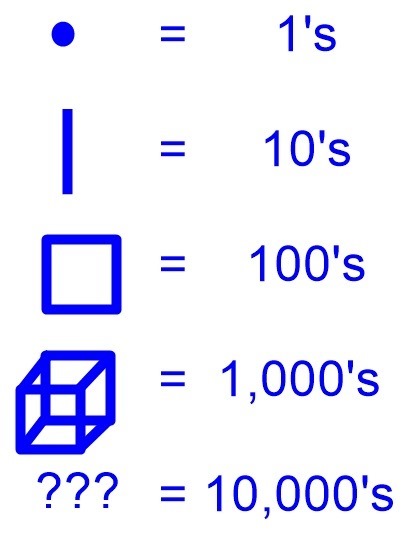
 For the longest time, I actively avoided getting attached to television shows. It seemed like every time I got hooked on a show, for example Pushing Daisies, the network would cancel it. It didn’t matter if the show had a big following or was a virtual unknown. If I began to watch it, it would get cancelled. Despite my attempts to remain aloof to new shows, however, a handful of geeky TV shows have hooked me.
For the longest time, I actively avoided getting attached to television shows. It seemed like every time I got hooked on a show, for example Pushing Daisies, the network would cancel it. It didn’t matter if the show had a big following or was a virtual unknown. If I began to watch it, it would get cancelled. Despite my attempts to remain aloof to new shows, however, a handful of geeky TV shows have hooked me.
Arrow (CW)
I know, I know. As a network, the CW seems more likely to air "teenage comedy/drama #73" then a geeky comic book show. To be fair, Arrow does have more than its share of "young adult drama" (the characters aren’t teens). Still, it tends to be tolerable and easily overlooked to see the journey of Oliver Queen from rich playboy to castaway to deadly vigilante to hero. Oliver Queen is a spoiled brat/party animal who takes his girlfriend’s sister on the family yacht with him when the boat sinks killing everyone on board (including Oliver’s father). For the next five years, Oliver goes through hell and emerges a changed man. He’s on a mission to punish evil doers who threaten his city. Along the way, he picks up some allies and makes some new enemies.
The Flash (CW)
Barry Allen is a geeky police forensic scientist. He’s got a huge brain, but slow legs. He’s also dedicated his life to figuring out who killed his mother and pinned the blame on his father. His only lead: It was a man in a yellow suit who surrounded his mother with red and yellow "lightning." Then a particle accelerator malfunctions and he gets struck by lightning. Nine months later, he wakes up from a coma able to move at incredible speeds. Unfortunately, the particle accelerator also creates other "metahumans" – many of whom decide to use their new powers for illegal personal gain and/or to hurt people. Barry becomes the Flash to stop them.
If Arrow is a Batman analogue (vigilante not afraid to hurt people to enact justice), Flash is the Superman analogue. He has a strong moral code and sees the world in terms of good and evil. He wouldn’t dabble in "grey realms" to get the job done. This show is more humorous (they actually name their metahuman opponents) and much lighter in tone than Arrow.
Star Wars Rebels (Disney XD)
After the Clone Wars ended but before a new hope emerged, there was a period of time when the Empire ruled the galaxy. In this dark time, anyone and everyone cowered before their might. Well, maybe not everyone. Star Wars Rebels introduces a small group who are doing all they can to strike blows against the Empire. They don’t have the might to strike directly at the Empire, but they can certainly can act as an annoying thorn in the Empire’s side. It’s also helpful that their leader is a former Jedi. Especially since they meet Ezra – a thief who happens to be strong in the Force. Along the way, they’ll meet some allies, some powerful enemies, many new faces and a few familiar old ones. All while trying to survive and stick it to the Empire any way they can.
Marvel’s Agents of S.H.I.E.L.D (ABC)
After the battle of New York City in Avengers, Agent Coulson lies dead and some dangerous technology is loose in the world. So Nick Fury has a small team gathered to operate outside of most of S.H.I.E.L.D.’s red tape. This team is led by Agent Coulson who had mysteriously returned from the dead. As the show progresses, not only do they pursue a mysterious enemy who always seems to be one step ahead of them, but they deal with repercussions arising from the events that take place in Thor 2: The Dark World and Captain America 2: The Winter Soldier.
I missed this one when it first aired. I forgot to set my DVR and wound up a few episodes behind with no way to catch up. I eventually wrote this series off as one I’d probably watch "eventually." When it showed up on Netflix, I happily devoured season one, amazed at each twist and turn. Every time I was sure which way the show would head, it would turn and head in a different direction. As the series came to a close, though, I realized that season two was too far along for me to view the beginning. So here I am again needing to wait until they repeat the season or until season 2 hits Netflix.
Agent Carter (ABC)
I had heard that Agent Carter was coming to TV, but to be honest wasn’t too interested. After all, she isn’t a superhero or part of a team of secret agents. She was just the woman Captain America loved during the war, right? How wrong I was. After Captain America "died" and the war ended, Agent Peggy Carter found herself working for the Strategic Scientific Reserve – and by working, I mean she’s been regulated to performing secretarial chores while her co-workers make demeaning comments about how women can’t do "the real work." Agent Carter puts up with it, never letting it drag her down, but when an old friend – Howard Stark – gets in trouble and calls on her to help, she takes him up on it and works to unravel the mystery.
I love how Peggy Carter works the system on the sly, manipulating the men and their prejudices for the advantage of her investigation. For example, in one meeting – where she is deemed "not essential" – she shows up seemingly to serve the men coffee. They see this as "a woman’s normal behavior" and thus don’t suspect that Peggy is only there to gather intel. Agent Peggy Carter is smart, tough, and relies on nobody. She’s equally at home figuring out where the clues lead and in a fist fight. She might not be a super soldier, but she’s a hero all on her own and I can’t wait to see where they take this show.
We’re definitely living in a golden age of geeky television. What television shows are you hooked on?
NOTE: The "Hi-Def Television" image above is by bnsonger47 and is available from OpenClipArt.org.






